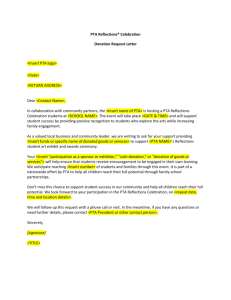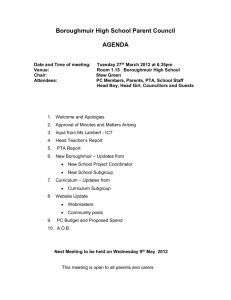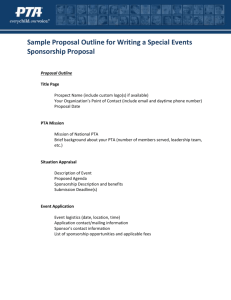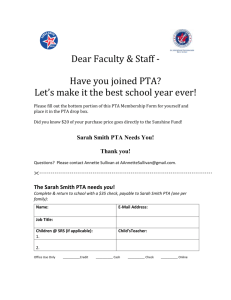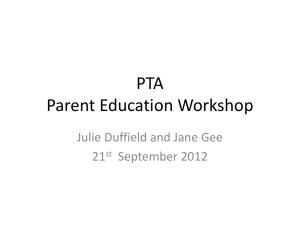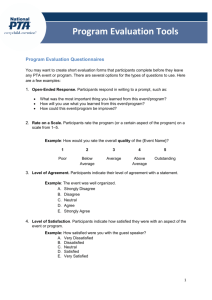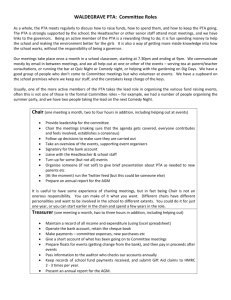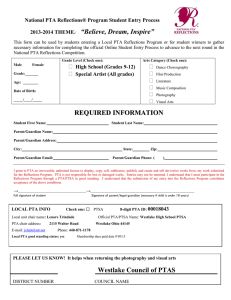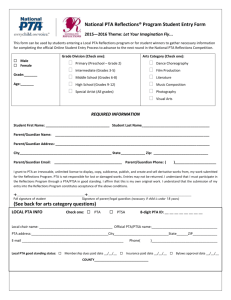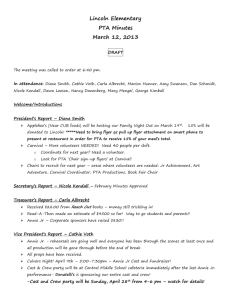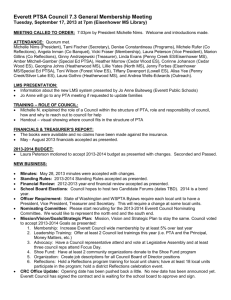Appendix H – Arts and Reflections Messages To Share
advertisement
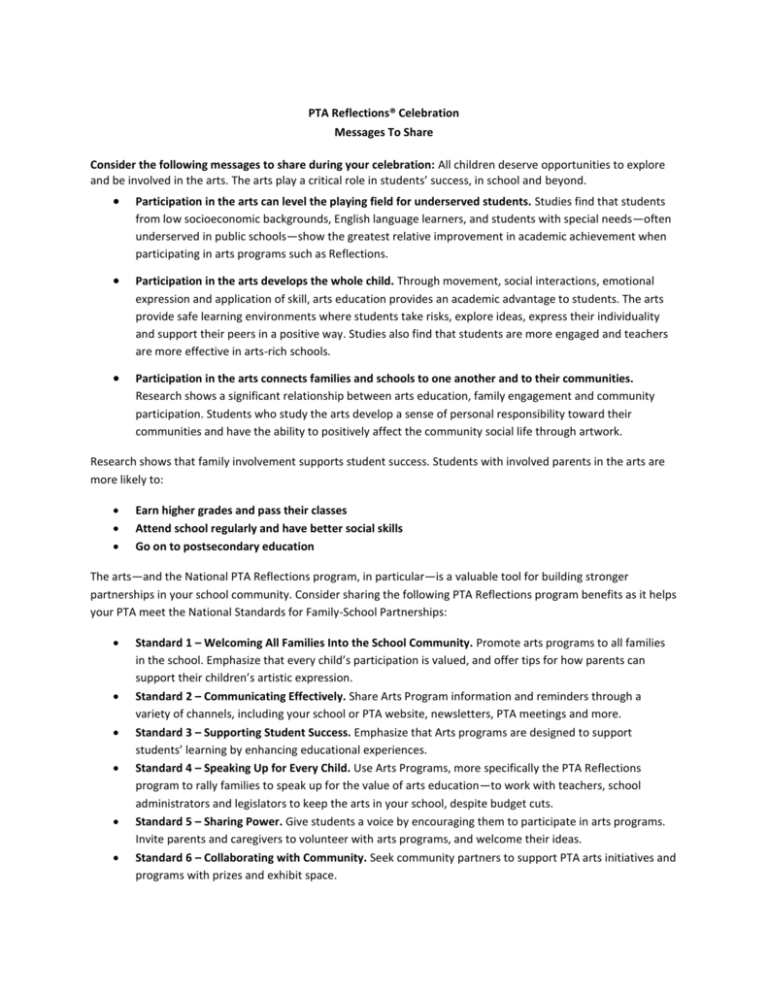
PTA Reflections® Celebration Messages To Share Consider the following messages to share during your celebration: All children deserve opportunities to explore and be involved in the arts. The arts play a critical role in students’ success, in school and beyond. Participation in the arts can level the playing field for underserved students. Studies find that students from low socioeconomic backgrounds, English language learners, and students with special needs—often underserved in public schools—show the greatest relative improvement in academic achievement when participating in arts programs such as Reflections. Participation in the arts develops the whole child. Through movement, social interactions, emotional expression and application of skill, arts education provides an academic advantage to students. The arts provide safe learning environments where students take risks, explore ideas, express their individuality and support their peers in a positive way. Studies also find that students are more engaged and teachers are more effective in arts-rich schools. Participation in the arts connects families and schools to one another and to their communities. Research shows a significant relationship between arts education, family engagement and community participation. Students who study the arts develop a sense of personal responsibility toward their communities and have the ability to positively affect the community social life through artwork. Research shows that family involvement supports student success. Students with involved parents in the arts are more likely to: Earn higher grades and pass their classes Attend school regularly and have better social skills Go on to postsecondary education The arts—and the National PTA Reflections program, in particular—is a valuable tool for building stronger partnerships in your school community. Consider sharing the following PTA Reflections program benefits as it helps your PTA meet the National Standards for Family-School Partnerships: Standard 1 – Welcoming All Families Into the School Community. Promote arts programs to all families in the school. Emphasize that every child’s participation is valued, and offer tips for how parents can support their children’s artistic expression. Standard 2 – Communicating Effectively. Share Arts Program information and reminders through a variety of channels, including your school or PTA website, newsletters, PTA meetings and more. Standard 3 – Supporting Student Success. Emphasize that Arts programs are designed to support students’ learning by enhancing educational experiences. Standard 4 – Speaking Up for Every Child. Use Arts Programs, more specifically the PTA Reflections program to rally families to speak up for the value of arts education—to work with teachers, school administrators and legislators to keep the arts in your school, despite budget cuts. Standard 5 – Sharing Power. Give students a voice by encouraging them to participate in arts programs. Invite parents and caregivers to volunteer with arts programs, and welcome their ideas. Standard 6 – Collaborating with Community. Seek community partners to support PTA arts initiatives and programs with prizes and exhibit space.
